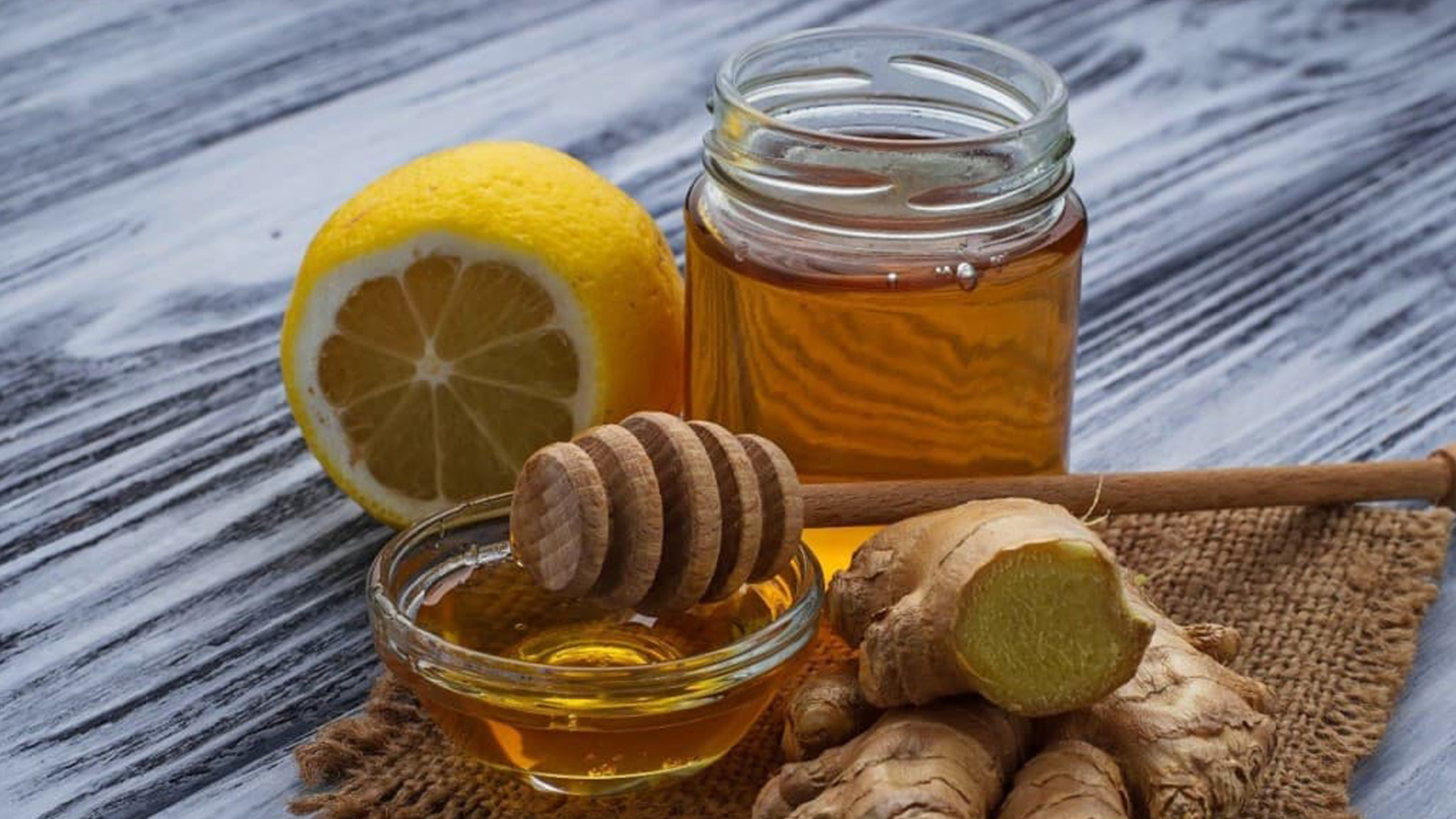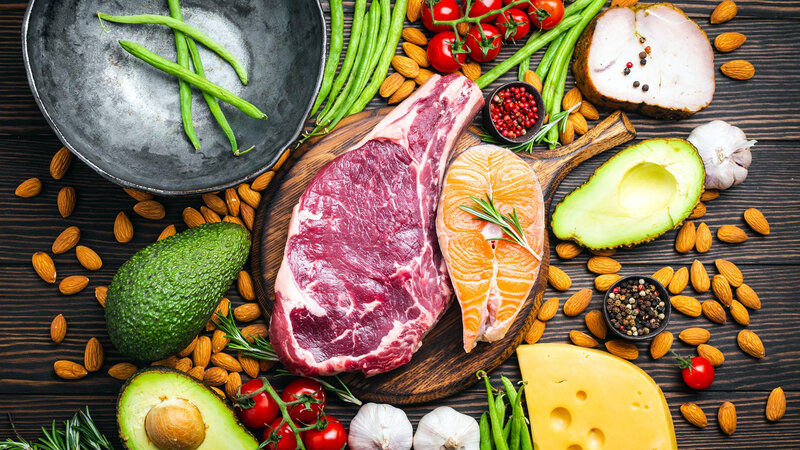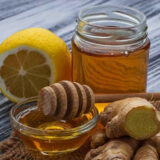What Happens if You Eat Ginger and Honey?
Ginger and honey have long been cherished as natural ingredients with potent health-promoting properties across various cultures. Ginger, a root native to Southeast Asia, has been used for thousands of years for its medicinal qualities, particularly in traditional Asian and Ayurvedic medicine.
Its active compound, gingerol, is known for its anti-inflammatory and antioxidant effects, which can support digestion and ease nausea. Honey, often referred to as “liquid gold,” has been revered for its antimicrobial and soothing properties. It has been used for centuries to treat wounds, as a natural cough remedy, and for its overall ability to boost immunity.
The combination of ginger and honey enhances the healing potential of both ingredients. Ginger’s spicy, warming nature pairs beautifully with honey’s sweet, soothing qualities, making them an ideal duo for promoting overall wellness. Together, they provide a synergistic effect, complementing each other’s strengths in supporting the body’s natural defenses, digestion, and overall vitality.
The purpose of this article is to explore the various health benefits and effects of consuming ginger and honey together. By delving into the individual properties of each ingredient and how they interact, we aim to understand how this natural combination can be a powerful addition to a healthy lifestyle.
Nutritional Profile of Ginger
Ginger is a highly nutritious root that has been valued for both its culinary and medicinal qualities for centuries. It is packed with essential vitamins, minerals, and antioxidants that contribute to its many health benefits.
1. Vitamins: Ginger is a good source of vitamin B6, which plays a crucial role in supporting brain function, producing red blood cells, and maintaining a healthy metabolism. It also contains vitamin C, a powerful antioxidant that supports immune function, promotes healthy skin, and enhances the body’s ability to fight off infections.
2. Minerals: Ginger provides key minerals like magnesium, which is essential for muscle and nerve function, and potassium, which helps maintain healthy blood pressure levels, proper heart function, and overall fluid balance.
3. Antioxidants: Ginger is rich in antioxidants, particularly polyphenols, which help neutralize free radicals in the body and reduce oxidative stress. This contributes to the prevention of chronic diseases like heart disease, cancer, and diabetes.
The primary active compound in ginger, gingerol, is responsible for many of its medicinal properties. Gingerol has powerful anti-inflammatory, antioxidant, and antimicrobial effects.
It helps to reduce inflammation in the body, supports digestive health by stimulating gastric juices, and can even alleviate nausea, motion sickness, and digestive discomfort.
In traditional medicine, ginger has been used for millennia. In Ayurvedic practices, it is considered a universal remedy, often used to treat a variety of ailments, including digestive issues, respiratory conditions, and even as a remedy for colds and flu.
Ancient Chinese medicine also utilized ginger for its warming properties, believed to promote circulation, detoxify the body, and improve digestion. Whether consumed as a tea, powder, or fresh root, ginger has stood the test of time as a potent natural remedy.
Nutritional Profile of Honey
Honey is not only a sweet treat but also a powerful natural food with a wide range of nutritional benefits. It has been prized for its medicinal properties and used as a natural remedy for centuries. Its nutritional composition includes a variety of natural sugars, vitamins, minerals, and antioxidants that make it a valuable addition to a healthy diet.
1. Natural Sugars: The primary component of honey is natural sugars, mainly glucose and fructose. These sugars provide a quick source of energy while being absorbed at different rates, making honey a more balanced sweetener compared to refined sugar. The glucose in honey is absorbed quickly by the body, while fructose is metabolized more slowly, providing sustained energy release.
2. Vitamins: Honey contains small amounts of various vitamins, including vitamin B6 and B12. Vitamin B6 plays a role in brain health, metabolism, and immune function, while vitamin B12 is crucial for nerve function and the production of red blood cells.
3. Minerals: Honey provides essential minerals such as calcium, iron, and magnesium. Calcium supports bone health, while magnesium plays a role in muscle and nerve function, and iron is necessary for oxygen transport in the blood.
4. Antioxidants: Honey is rich in antioxidants, particularly flavonoids and phenolic acids, which help neutralize free radicals and reduce oxidative stress in the body. These antioxidants can support cardiovascular health, reduce the risk of chronic diseases, and have anti-inflammatory properties.
Role of Honey as a Natural Sweetener
Honey has been used as a natural sweetener for thousands of years. Unlike refined sugars, honey has a lower glycemic index, meaning it doesn’t cause rapid spikes in blood sugar levels.
This makes it a healthier alternative for those looking to reduce sugar intake or manage blood sugar levels. Additionally, honey has a distinct flavor profile depending on the flowers it comes from, adding a unique taste to foods and beverages.
Historical Medicinal Use
Historically, honey has been used for its medicinal properties in various cultures. In ancient Egypt, honey was used to treat wounds and burns due to its natural antimicrobial properties.
The Greeks and Romans used honey for digestive issues, respiratory conditions, and as an energy booster. It was also commonly used in Ayurvedic medicine for its anti-inflammatory, digestive, and healing properties.
Unique Properties of Raw, Unprocessed Honey
Raw honey, which is honey in its most natural form, is unprocessed and unheated. Unlike regular honey, which is pasteurized to extend its shelf life, raw honey retains more of its natural nutrients, including enzymes, antioxidants, and vitamins.
It has a more complex flavor and contains small amounts of bee pollen, propolis, and royal jelly, which are believed to offer additional health benefits. Raw honey’s antimicrobial and anti-inflammatory properties are particularly potent, making it a preferred choice for many who seek to maximize its health-promoting effects.
In contrast, regular honey undergoes heating and filtration processes that remove some of its beneficial components. While it still offers some health benefits, raw honey is often considered superior for its ability to support immunity, aid digestion, and heal wounds.
Health Benefits of Ginger and Honey Combination
The powerful combination of ginger and honey offers a wide range of health benefits, making it a popular natural remedy in many cultures. When consumed together, these ingredients complement each other’s properties and work synergistically to promote overall wellness. Below are some key health benefits of combining ginger and honey:
1. Boosts Immunity
Ginger and honey both possess strong antibacterial and antiviral properties, which work together to strengthen the immune system.
- Ginger contains compounds like gingerol that help fight infections and boost immune function. It also supports the body in fighting off pathogens by promoting better circulation and stimulating the immune response.
- Honey has natural antimicrobial properties, which make it effective in inhibiting the growth of harmful bacteria and viruses. It can help combat colds and flu, particularly when taken regularly during the colder months.
Together, these ingredients provide a powerful defense mechanism against common infections. Additionally, the antioxidants in both ginger and honey help reduce oxidative stress and inflammation, promoting long-term immune health.
2. Improves Digestion
Both ginger and honey have digestive benefits, making this combination an excellent choice for digestive support.
- Ginger is well-known for its ability to ease nausea, promote gastric motility, and relieve indigestion. It stimulates the production of digestive enzymes and helps with bloating, gas, and discomfort.
- Honey has a soothing effect on the stomach lining, which can help reduce irritation and protect against ulcers and acid reflux. It also acts as a prebiotic, promoting the growth of beneficial bacteria in the gut, thereby supporting a healthy microbiome.
Together, ginger and honey can enhance digestion, promote a healthy gut, and alleviate digestive discomfort.
3. Anti-Inflammatory Effects
Both ginger and honey possess anti-inflammatory properties that can help reduce chronic inflammation in the body.
- Ginger has been shown to reduce markers of inflammation, which can be beneficial for conditions such as arthritis and joint pain. The active compound, gingerol, inhibits pro-inflammatory enzymes and helps decrease swelling and discomfort.
- Honey also has anti-inflammatory effects and can help reduce inflammation in the respiratory tract and other body systems. It’s particularly beneficial for conditions like sore throats and inflammation-related digestive issues.
When combined, ginger and honey may help manage conditions related to chronic inflammation, such as arthritis, by reducing pain and swelling.
4. Natural Remedy for Cough and Sore Throat
Ginger and honey have long been used as natural remedies for soothing sore throats and coughs.
- Honey provides a coating effect that soothes the throat, reducing irritation and helping to alleviate coughing. It also has antimicrobial properties that can help fight infections in the throat.
- Ginger has natural antimicrobial properties and can help clear respiratory passages, making it effective for treating coughs, colds, and throat infections.
Together, ginger and honey form a powerful combination that soothes the throat, reduces coughing, and fights infections, providing relief for respiratory issues.
5. Supports Weight Loss
Ginger and honey can be a helpful combination for those looking to manage their weight.
- Ginger has thermogenic properties, which means it can boost metabolism and increase fat burning. It also helps regulate blood sugar levels, which can reduce cravings and overeating.
- Honey helps balance blood sugar levels by releasing glucose slowly into the bloodstream, preventing insulin spikes and crashes that can lead to hunger pangs and cravings. Additionally, honey can help you feel fuller longer, promoting better appetite control.
Together, ginger and honey can curb cravings, balance energy levels, and boost metabolism, supporting weight loss efforts.
6. Improves Skin Health
The combination of ginger and honey can be a natural solution for healthy, radiant skin.
- Ginger is rich in antioxidants that help protect the skin from free radical damage, which can lead to premature aging. Its anti-inflammatory properties can also help reduce acne and irritation.
- Honey is a natural humectant, meaning it draws moisture into the skin. It hydrates and nourishes the skin, helping to keep it soft and supple. It also has antimicrobial properties that can help prevent acne and other skin infections.
Used together, ginger and honey can promote clear, glowing skin and help treat issues like acne, dryness, and premature aging.
7. Relieves Menstrual Pain
Ginger and honey can be a soothing combination for menstrual discomfort.
- Ginger has anti-inflammatory and muscle-relaxing properties that can help reduce menstrual cramps and alleviate pain. It also has the ability to improve blood circulation, which may reduce bloating and discomfort during menstruation.
- Honey has a calming effect on the body and can help regulate hormonal fluctuations that contribute to cramps and discomfort during menstruation.
Consuming ginger and honey together may provide relief from period pain, cramps, and bloating, helping to ease menstrual symptoms.
8. Enhances Heart Health
The combination of ginger and honey can support cardiovascular health and help reduce the risk of heart disease.
- Ginger has been shown to lower cholesterol levels, particularly bad cholesterol (LDL), while improving circulation and promoting healthy blood vessels. It also helps reduce blood pressure, which contributes to heart health.
- Honey can help reduce LDL cholesterol and prevent plaque buildup in the arteries, reducing the risk of heart disease. Additionally, its antioxidants help protect the heart from oxidative stress.
Together, ginger and honey work to improve heart health by lowering cholesterol, improving circulation, and reducing inflammation in the cardiovascular system.
9. Detoxifies the Body
Both ginger and honey support the body’s natural detoxification processes.
- Ginger stimulates the liver, which plays a key role in detoxification. It helps promote the elimination of toxins and supports the body’s natural ability to detoxify through improved digestion and circulation.
- Honey aids in digestion and helps flush out waste products from the body, promoting the excretion of toxins. Its antibacterial properties also help clear harmful bacteria and support the liver’s detoxification processes.
Together, ginger and honey enhance the body’s detox capabilities, supporting liver function and the elimination of waste products.
How to Consume Ginger and Honey for Maximum Benefits
The combination of ginger and honey can be consumed in various forms to maximize its health benefits. Here are several effective ways to enjoy these two powerful ingredients:
1. Ginger and Honey Tea
A warm cup of ginger and honey tea is a soothing and easy way to enjoy the health benefits of these ingredients.
Step-by-Step Guide:
Ingredients:
- 1-2 inches of fresh ginger root (peeled and sliced)
- 1 cup of hot water
- 1-2 teaspoons of raw honey (adjust to taste)
Instructions:
- Boil the water in a pot or kettle.
- While the water is heating, slice the ginger root into thin pieces.
- Add the sliced ginger to the hot water and let it steep for about 5-10 minutes, depending on how strong you want the flavor.
- Remove the ginger slices and stir in the raw honey.
- Taste and adjust the amount of honey for sweetness.
Tips for Optimizing Flavor and Benefits:
- For a stronger ginger flavor, add more ginger slices or allow it to steep for a longer period.
- For extra flavor, consider adding a squeeze of fresh lemon juice or a pinch of cinnamon.
- To boost the immune-boosting effects, add a pinch of turmeric or black pepper to your tea.
This tea is especially beneficial when consumed in the morning or before bed, as it helps with digestion and supports immunity.
2. Raw Ginger and Honey
For a quick and powerful health boost, consuming raw ginger and honey is an effective option. This method is particularly beneficial for its anti-inflammatory and immune-boosting effects.
How to Prepare and Consume:
Ingredients:
- 1 small piece of fresh ginger root
- 1-2 teaspoons of raw honey
Instructions:
- Peel the ginger root and slice it into thin pieces or grate it.
- Take a small amount of the raw ginger (about 1-2 teaspoons) and mix it with honey in a spoon.
- You can either chew the ginger and honey mixture directly or let it dissolve slowly in your mouth for maximum benefit.
Storing Ginger and Honey for Daily Use:
- If you prefer to prepare ginger and honey in advance, grate ginger and store it in a glass jar. When needed, mix it with honey for a quick dose.
- Store the jar in the fridge for up to a week, ensuring that the ginger remains fresh.
This method delivers a concentrated dose of ginger’s health benefits along with honey’s soothing properties, making it an ideal natural remedy for colds, sore throats, or digestive issues.
3. Ginger and Honey in Smoothies
For a refreshing and nutritious drink, ginger and honey can be added to smoothies. This is a great way to incorporate both ingredients into your daily routine while enjoying other fruits and vegetables.
How to Incorporate Ginger and Honey into Smoothies:
Ingredients:
- 1-inch piece of fresh ginger root
- 1-2 teaspoons of raw honey
- 1 banana (or other fruit of your choice)
- 1 cup of leafy greens (spinach, kale, etc.)
- 1 cup of almond milk (or any milk of choice)
- Optional: ice cubes or frozen fruit for a cooler drink
Instructions:
- Peel the ginger and cut it into small pieces.
- Add the ginger, honey, and other ingredients (banana, greens, almond milk) into a blender.
- Blend on high until smooth, and adjust sweetness with extra honey if needed.
- Serve immediately and enjoy as a nutritious, energy-boosting snack or breakfast.
How to Pair with Other Fruits and Vegetables:
- Pairing ginger and honey with fruits like oranges, apples, and pineapples enhances the flavor while providing extra vitamin C, which supports the immune system.
- For added fiber and digestive support, you can blend ginger and honey with vegetables like carrots, cucumbers, or beets.
- Adding chia seeds, flax seeds, or yogurt can make the smoothie even more nutrient-dense.
- 4. Honey and Ginger Paste for Skin Care
- Ginger and honey also offer benefits when used topically, especially for skin care. Together, they can help with acne, dry skin, and premature aging due to their antimicrobial and antioxidant properties.
How to Prepare the Paste:
Ingredients:
- 1 teaspoon of grated fresh ginger
- 1-2 teaspoons of raw honey
Instructions:
- Grate the fresh ginger and combine it with the raw honey in a small bowl.
- Mix the two ingredients together until you have a smooth paste.
How to Apply the Paste:
- Cleanse your face thoroughly before applying the paste.
- Gently apply the ginger and honey mixture to the affected area (such as acne spots or dry patches).
- Leave the paste on for about 10-15 minutes, then rinse off with warm water.
- Pat your skin dry with a clean towel and follow up with a moisturizer.
Safety Tips:
- Always perform a patch test before applying the paste to your face to ensure you do not have an allergic reaction, especially if you have sensitive skin.
- Avoid applying the paste to broken or irritated skin, as ginger can cause a mild burning sensation.
- This natural remedy can help combat acne, reduce inflammation, and hydrate the skin, making it a great addition to your skincare routine.
- By incorporating ginger and honey in these various forms, you can enjoy their health benefits throughout the day while supporting your overall wellness. Whether as a soothing tea, a powerful health booster, or a skincare remedy, ginger and honey are versatile, natural ingredients that work in harmony to improve your health.
Potential Side Effects and Precautions
While ginger and honey offer numerous health benefits, it is important to be aware of potential side effects and take necessary precautions when using them. Below are some considerations to keep in mind when incorporating ginger and honey into your routine.
Ginger Sensitivity
Ginger is generally considered safe for most people when consumed in moderation, but it can cause digestive discomfort or other reactions in some individuals.
- Possible Digestive Upset: Some people may experience mild digestive issues such as gas, bloating, or heartburn when consuming ginger, especially in large amounts. This is more common in individuals with sensitive stomachs or gastrointestinal conditions.
- Heartburn or Irritation: Ginger’s spicy nature can cause irritation or discomfort in the esophagus and stomach, leading to heartburn or acid reflux in some individuals, especially when consumed in excess.
Precautions for Specific Conditions:
- Gallbladder Issues: If you have gallstones or a history of gallbladder problems, it’s advisable to consult your doctor before using ginger regularly, as it may stimulate bile production and potentially aggravate these conditions.
- Bleeding Disorders: Ginger has natural blood-thinning properties, which can be beneficial in many cases but may be risky for individuals with bleeding disorders or those taking blood-thinning medications. It is recommended to consult a healthcare provider if you are on medication like warfarin, or if you have a history of bleeding or clotting disorders.
Honey Sensitivity and Allergies
While honey is generally safe for most people, it can cause allergic reactions in some individuals, especially those with bee allergies or pollen sensitivities.
- Allergic Reactions: People who are allergic to bees or pollen may experience allergic reactions to honey, such as hives, swelling, or difficulty breathing. In rare cases, honey may cause anaphylaxis, which requires immediate medical attention.
- Precautions for Infants and Young Children: Honey should never be given to infants under one year old due to the risk of botulism, a rare but serious illness caused by the bacteria Clostridium botulinum. This bacteria can produce toxins in the intestines of infants, leading to muscle weakness, respiratory issues, and in severe cases, death. Honey should be avoided until a child is over one year old.
Interactions with Medications
Both ginger and honey can interact with certain medications, so it is essential to be cautious if you are taking prescription drugs.
- Ginger and Blood Thinning Medications: Ginger’s blood-thinning properties can interact with anticoagulants such as warfarin, aspirin, or other blood-thinning medications. This may increase the risk of bleeding or bruising, especially if taken in large quantities.
- Ginger and Insulin: Ginger may help regulate blood sugar levels, but it can interact with insulin or other diabetes medications, potentially causing blood sugar levels to drop too low (hypoglycemia). If you are on diabetes medication, it is important to monitor your blood sugar levels closely and consult your doctor before using ginger regularly.
- Other Medications: Ginger can also interact with medications used to treat high blood pressure or gastrointestinal conditions. If you are on medication for these or any other chronic conditions, it is recommended to speak with a healthcare provider before incorporating ginger into your daily routine.
Moderation
As with any natural remedy or food, moderation is key to avoiding potential side effects.
- Daily Intake: While ginger and honey are both safe when consumed in moderate amounts, excessive consumption can lead to unwanted effects. The general recommendation is to limit ginger intake to around 1 to 2 grams per day, especially for individuals with sensitive digestive systems. For honey, a small amount (about 1-2 teaspoons) per day is sufficient to enjoy its benefits without overconsumption of sugar.
- Balancing with Other Foods: It’s important to maintain a balanced diet and not rely solely on ginger and honey for health benefits. While these ingredients are potent, they should be part of a well-rounded approach to nutrition, which includes a variety of fruits, vegetables, whole grains, and protein sources.
By consuming ginger and honey in moderation and being mindful of any sensitivities or medication interactions, you can enjoy their numerous health benefits safely. Always consult with a healthcare provider if you have concerns or pre-existing conditions that may require special attention.
Scientific Studies Supporting Ginger and Honey Benefits
Ginger and honey have long been utilized in traditional medicine for their health-promoting properties, and scientific research continues to support their efficacy. Below is an overview of research studies on the individual benefits of ginger and honey, as well as evidence supporting their combined effects on various health conditions.
Individual Benefits of Ginger
1. Immune Support:
Research has shown that ginger has strong immune-boosting properties due to its bioactive compound, gingerol. A study published in the Journal of Medicinal Food (2013) found that ginger exhibited antimicrobial effects and could help reduce the severity and duration of infections, making it beneficial in strengthening the immune system.
2. Digestive Health:
Ginger has been shown to have significant benefits for digestive health, particularly in improving gastric motility and reducing nausea. A study published in the World Journal of Gastroenterology (2012) concluded that ginger was effective in reducing nausea and vomiting, particularly in pregnancy-related morning sickness and motion sickness. Additionally, ginger was found to enhance overall digestion and alleviate indigestion symptoms in individuals with gastrointestinal discomfort.
3. Anti-Inflammatory Effects:
The anti-inflammatory effects of ginger are well-documented, with studies showing that it can reduce chronic inflammation and pain. A review published in Osteoarthritis and Cartilage (2009) demonstrated that ginger supplementation significantly reduced pain and improved function in individuals with osteoarthritis, a condition characterized by chronic inflammation.
Individual Benefits of Honey
1. Antioxidant and Antimicrobial Properties:
Honey is rich in antioxidants, which help protect the body from oxidative stress. A study in the Journal of Agricultural and Food Chemistry (2008) highlighted that honey contains flavonoids and phenolic compounds that possess potent antioxidant properties, which help combat free radicals and reduce inflammation in the body. Honey’s antimicrobial properties have also been well-documented, with research showing that honey can inhibit the growth of harmful bacteria and support wound healing.
2. Digestive Health:
Honey has prebiotic effects, which means it helps promote the growth of beneficial bacteria in the gut. A study published in Food Research International (2016) found that honey’s prebiotic properties could enhance the growth of probiotics like Lactobacillus and Bifidobacteria, thus supporting a healthy gut microbiome and improving digestion.
3. Skin Health:
Honey has been widely researched for its role in skin care, thanks to its moisturizing, antimicrobial, and healing properties. A study published in the International Journal of Dermatology (2001) demonstrated that honey was effective in treating wounds and burns due to its ability to promote tissue regeneration and its antimicrobial effects. Honey also helps to hydrate the skin and maintain a healthy moisture balance, making it beneficial for preventing dryness and irritation.
Combined Benefits of Ginger and Honey
The combination of ginger and honey has garnered attention in recent studies due to their synergistic effects. Research suggests that together, these ingredients can provide enhanced benefits for immune support, digestive health, inflammation reduction, and more.
1. Immune Support:
A study published in the Journal of Immunology Research (2018) examined the combined effects of ginger and honey in boosting immune function. The study found that both ginger and honey individually exhibited immune-boosting properties, and when combined, they had a more significant effect on enhancing the body’s immune response. The antibacterial and antiviral properties of both ingredients work synergistically to help combat infections.
2. Digestive Health:
Ginger and honey together have been shown to have complementary digestive benefits. Ginger is known for its ability to alleviate nausea and improve gastric motility, while honey’s soothing effects help protect the stomach lining. A study in Complementary Therapies in Medicine (2016) demonstrated that the combination of ginger and honey was effective in reducing symptoms of indigestion, bloating, and discomfort in individuals with gastrointestinal issues. The soothing properties of honey and the digestive stimulation of ginger help improve overall digestion.
3. Anti-Inflammatory Effects:
The combination of ginger and honey can also be powerful in reducing inflammation. A study published in Phytotherapy Research (2013) found that gingerol, the active compound in ginger, works in synergy with honey’s antioxidants to reduce inflammation and pain in conditions like arthritis and joint pain. Together, ginger and honey help lower inflammatory markers in the body, providing relief from chronic inflammatory conditions.
4. Heart Health:
A clinical trial published in the International Journal of Cardiology (2012) explored the effects of ginger and honey on cardiovascular health. The study found that both ginger and honey individually contributed to lowering cholesterol levels, improving blood circulation, and reducing blood pressure.
When combined, ginger and honey had a more significant impact on improving overall heart health and reducing the risk of heart disease. This combined effect helps prevent plaque buildup in arteries and supports healthy blood circulation.
5. Weight Loss:
The combination of ginger and honey may also support weight loss efforts. A study in the Journal of Obesity (2014) indicated that ginger helped improve metabolism and fat burning, while honey helped stabilize blood sugar levels and curb cravings. Together, these ingredients promote a feeling of fullness, reduce hunger, and support healthy weight management.
6. Skin Health:
Both ginger and honey have been shown to benefit the skin, and when used together, their effects are amplified. A study published in The Journal of Clinical and Aesthetic Dermatology (2014) found that honey’s moisturizing and antimicrobial properties worked synergistically with ginger’s antioxidant and anti-inflammatory effects to improve skin conditions like acne, dryness, and aging. Together, they provide hydration, reduce inflammation, and protect against skin damage.
Ginger and honey are two natural ingredients that have long been valued for their health-promoting properties. Both offer a wide range of benefits individually—boosting immunity, improving digestion, reducing inflammation, and supporting overall wellness.























